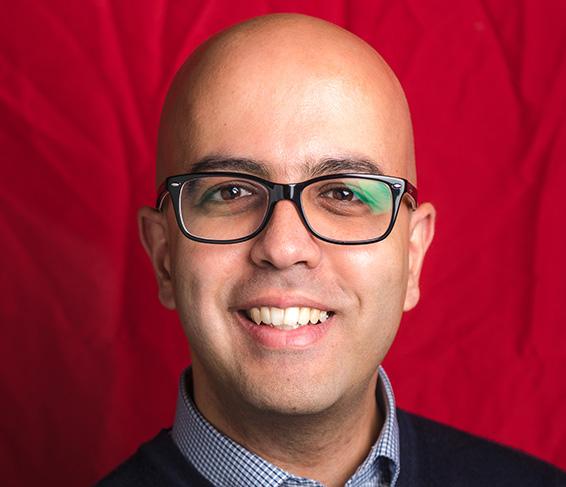Sequencing offers clues to progression toward multiple myeloma
Researchers at Dana-Farber Cancer Institute have carried out the largest genomic analysis of patients with smoldering multiple myeloma (SMM), a precursor to full-blown blood cancer that doesn't show outward symptoms. The next-generation sequencing project "will help to explain the biology of the disease and how it unfolds through time from asymptomatic stages to symptomatic ones," said Mark Bustoros, MD, a postdoctoral fellow in the lab of Irene Ghobrial, MD.
"This research also will help us to understand which patients with SMM are at a high risk of progression, and eventually how we can target early stages of the disease, so that we don't wait to treat them until the cancer cells are spread everywhere in the body and cause major organ damage," said Bustoros, who presented results of the study at the 59th American Society of Hematology (ASH) Annual Meeting and Exposition in Atlanta.
The scientists, led by Ghobrial, sequenced 186 bone marrow biopsies from patients with SMM, some of whom progressed to multiple myeloma and some of whom did not. They then matched up the genomic data with standard analyses of risks of progression provided by current non-genetic clinical biomarkers.
"We found that mutations were more frequent in the high-risk group of patients with SMM," Bustoros said. "We also found that certain mutations that are known to be drivers for cancer progression were more enriched in that group."
Many of the mutations were among genes in the MAPK and NF-kB molecular pathways, while others were MYC gene aberrations that are known to be altered in multiple myeloma. Patients who harbored these mutations had greater risk of progression to the symptomatic disease.
In addition to analyzing bone marrow biopsies, the scientists sequenced 20 samples of cell-free DNA (cfDNA) in blood from people with SMM. "Bone marrow biopsies are painful and inconvenient as diagnostic tools, so the idea of liquid blood biopsies came along a few years ago," Bustoros said.
The study showed that the fractions of tumor DNA in the blood were higher in the high-risk SMM patients than in the low-risk SMM patients. The scientists hope to eventually develop ways to apply cfDNA sequencing to monitoring patients with myeloma and especially its precursor conditions, Monoclonal Gammopathy of Undetermined Significance (MGUS) and SMM.
Samples for the research came from Dana-Farber's Center for Prevention of Progression of Blood Cancers (CPOP), which has gathered tissue and blood samples from more than 1,000 patients with precursor conditions to various blood cancers.
The researchers now are sequencing dozens of additional patient samples, many of them from cancer centers around the country and the globe, and are looking for samples that span different points in time along myeloma progression.
"After finishing the study, we will integrate genomic and clinical data and try to construct a model that can be applied in the clinic, to identify patients who are at high risk of progression, and potentially to offer them earlier treatment," Bustoros said.
Lead funding for the work came from the National Institutes of Health, the Leukemia & Lymphoma Society, the Multiple Myeloma Research Foundation, and Stand Up to Cancer. Salomon Manier, MD, PhD, an instructor in the Ghobrial Lab, initiated the study. Other contributors at Dana-Farber included Jihye Park, PhD; Karma Ziad Salem, MD; Chia-Jen Liu, MD, PhD; Marzia Capelletti, PhD; Daisy Huynh, BS, MS; Yu-Tzu Tai, PhD; Tarek Mouhieddine, MD; Adriana Perilla Glen; Patrick Henrick, BS; Aaron Caola; Bradley Rivotto, BS; Alexandra Savell, BS; Kimberly Noonan, NP; Kaitlen Reyes, NP; Antonio Sacco; Cody Boehner; Houry Leblebjian, PharmD; David Liu, MD, MPH, MS; Claudia Paba-Prada, MD; Eliezer Van Allen, MD; Jacob Laubach, MD; Robert Schlossman, MD; Nikhil Munshi, MD; Paul Richardson, MD; Kenneth Anderson, MD; and Irene Ghobrial, MD. Contributors from the Broad Institute of MIT and Harvard included Samuel Freeman; Gavin Ha, PhD; Justin Rhoades; Sarah Reed; Gregory Gydush; Denisse Rotem; Christopher Love, PhD; Viktor Adalsteinsson, PhD; and Gad Getz, PhD. Elizabeth Morgan, MD, from Brigham and Women's Hospital; Aldo Roccaro from the Civil Hospital of Brescia in Italy; and Shaji Kumar, MD, of the Mayo Clinic also contributed.
Media Contacts
If you are a journalist and have a question about this story, please call 617-632-4090 and ask to speak to a member of the media team, or email media@dfci.harvard.edu.
The Media Team cannot respond to patient inquiries. For more information, please see Contact Us.
